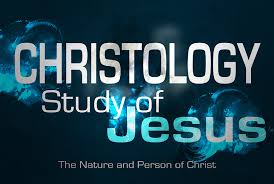The NAR prophets are proliferating a very dangerous teaching known as the Kenosis doctrine. Such doctrine is not merely academic disagreement on certain interpretation of Scripture but it actually denies most essential doctrines. By either diminishing the deity of Christ or undermining the union of the two fully-God and fully-man natures in one Person, this Kenosis doctrine has presented a doctrine of a different Jesus. Marking themselves as false prophets through this Kenosis doctrine and many more, it is not surprising to see more fruit of strange and bizarre teaching of pagan shamanistic-like practices from them.
(2 Cor 11:4. For if someone comes and proclaims another Jesus than the one we proclaimed, or if you receive a different spirit from the one you received, or if you accept a different gospel from the one you accepted, you put up with it readily enough.)
The Kenosis doctrine teaches that the Messiah, in order to assume the form of a servant and become incarnate (into human flesh), had to give up some, several, or even all the powers and attributes of God and “live as a mere man.” The logic is that since Jesus left His powers and attributes behind and lived as a mere man, we born-again believers are just as much an Incarnation of God as Jesus was. So if Jesus did all His miracles through the power of the Holy Spirit, born again believers could do likewise and even more.
This Kenosis doctrine is extremely dangerous as it denies most essential doctrines, especially Christology.
- It destroys the integrity of the atonement.
The Blood that redeemed the church has to be the blood of God. Acts 20:28. If He was not God, then His blood sacrifice was not INFINITELY powerful to redeem all who believe in every age. In other words, if Jesus was not fully divine, then His atoning work would not be sufficient to atone for the sins of the world. God was pleased to have all his fullness dwell in him, and through him to reconcile to himself all things, whether things on earth or things in heaven, by making peace through his blood, shed on the cross. Col 1:19-20.
- It destroys the Christian view of the incarnation.
Sovereignty is an attribute of God. According to Don Fortner it means ruling “all things, everywhere, at all times absolutely.” If, by becoming man, Christ gave up the use of His divine attributes in any way, then He was not sovereign. If Jesus was not sovereign during His earthly ministry, then He was not God. If He was not God, the Word that was God (Jn.1:1) never became flesh – only part of the Word did. And the name “Immanuel,” meaning “God with us” (NAS Mtt. 1:23), is a lie, and God’s Word is not true.
- It denies the immutability of God.
In order for the God the Son to abandon His sovereignty in any way, He would have to change His character or being. This, God would never do. “IAM WHO I AM” (NAS Ex. 3:14). “But Thou art the same, And Thy years will not come to an end.” (NAS Ps. 102:27). “Jesus Christ is the same yesterday and today, yes and forever.” (NAS Heb. 13:8). According to R.C. Sproul, “If God laid aside one of His attributes, the immutable undergoes a mutation, the infinite suddenly stops being infinite; it would be the end of the universe.”
- It undermines the monotheistic distinctive of the Christian faith.
The only way to limit the use of attributes of one Person without limiting the attributes of all three members of the Godhead is to divide God into three divine Beings for each of the three Persons. Jesus could then suspend His omnipotence, omniscience, omnipresence, etc., while the Father and Holy Spirit would continue to exercise sovereign dominion over the universe. This view of the Trinity, however, is polytheistic, not Christian. The Christian faith is monotheistic. We believe there is only one God. “Hear O Israel! The Lord our God is one Lord” (Mark 12:29). The Creed of Athanasius affirms this truth: “The Father is God, the Son is God, and the Holy Spirit is God, but there are not three gods, but one God…The Father is omnipotent, the Son is omnipotent and the Holy Spirit is omnipotent, but there are not three omnipotent Beings, but one omnipotent Being …We distinguish among the Persons, but we do not divide the Substance.”
(Article is extracted from www.kenosis.info and re-phrased.)
